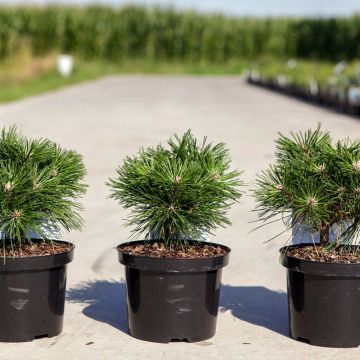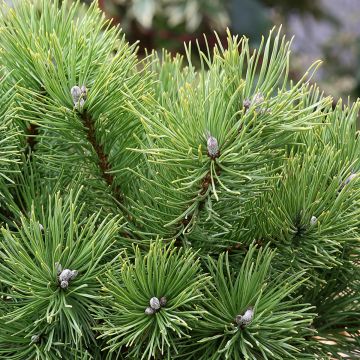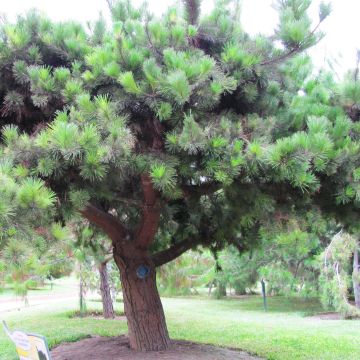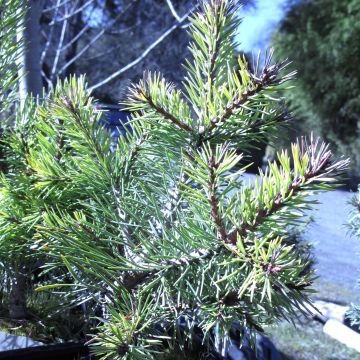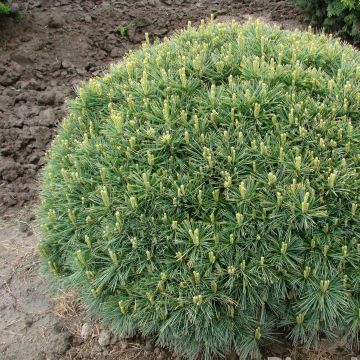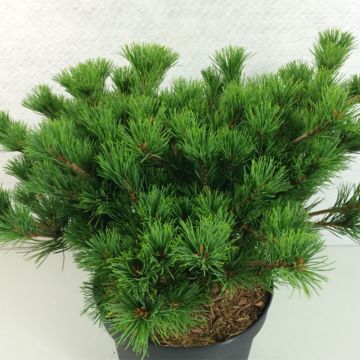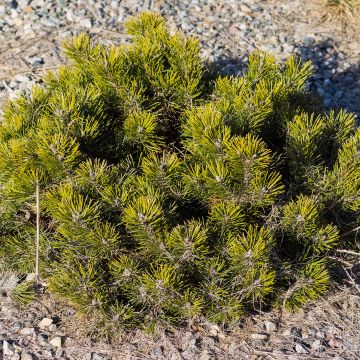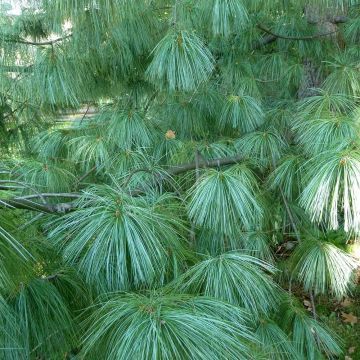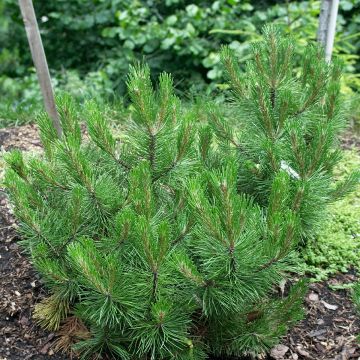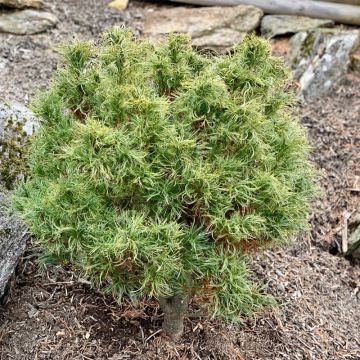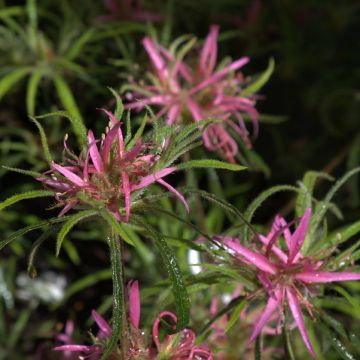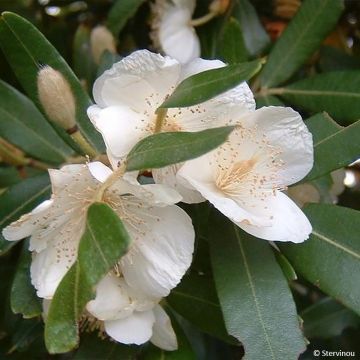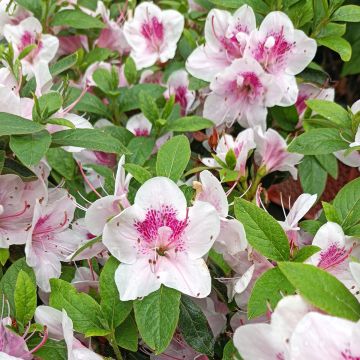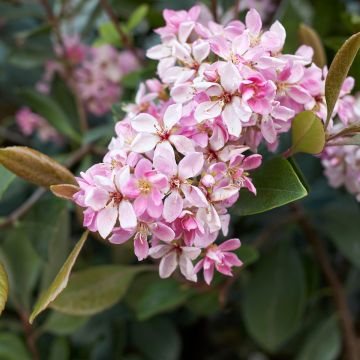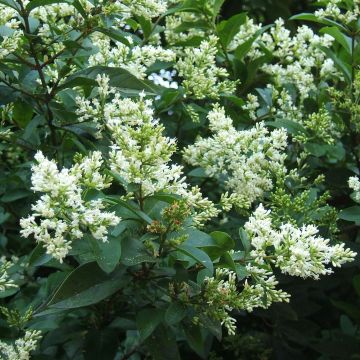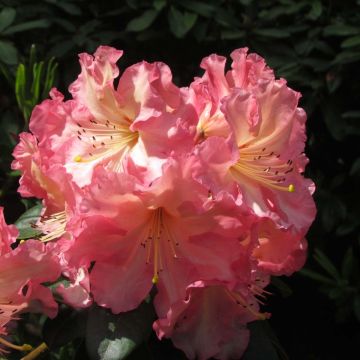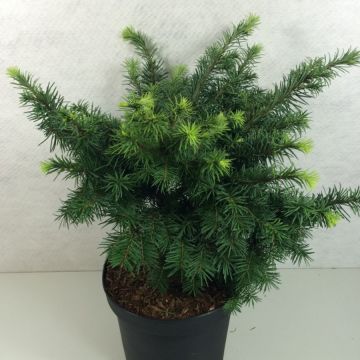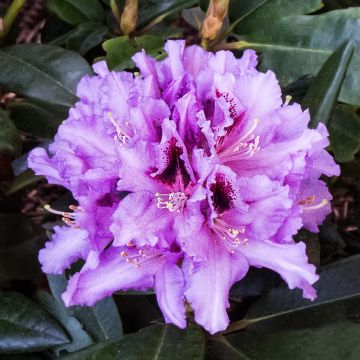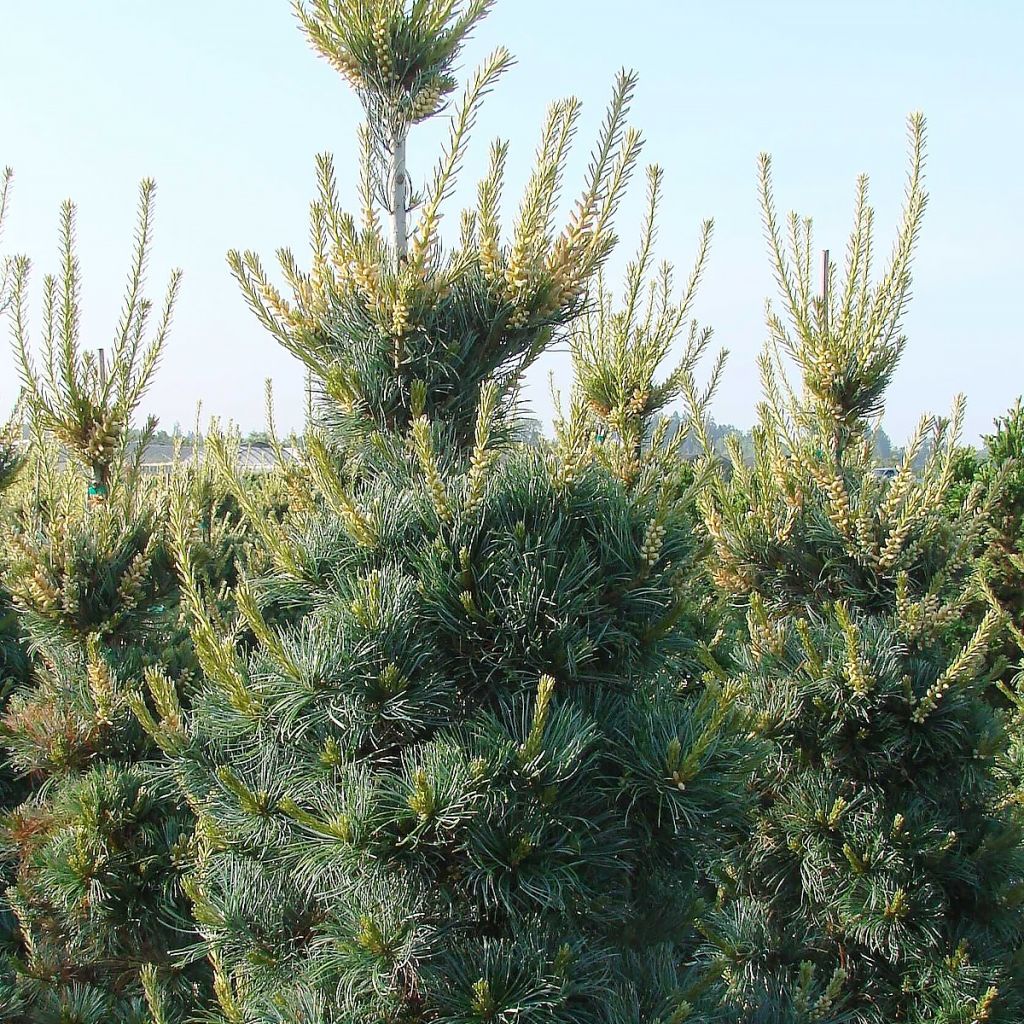

Pinus parviflora Tempelhof - Japanese White Pine
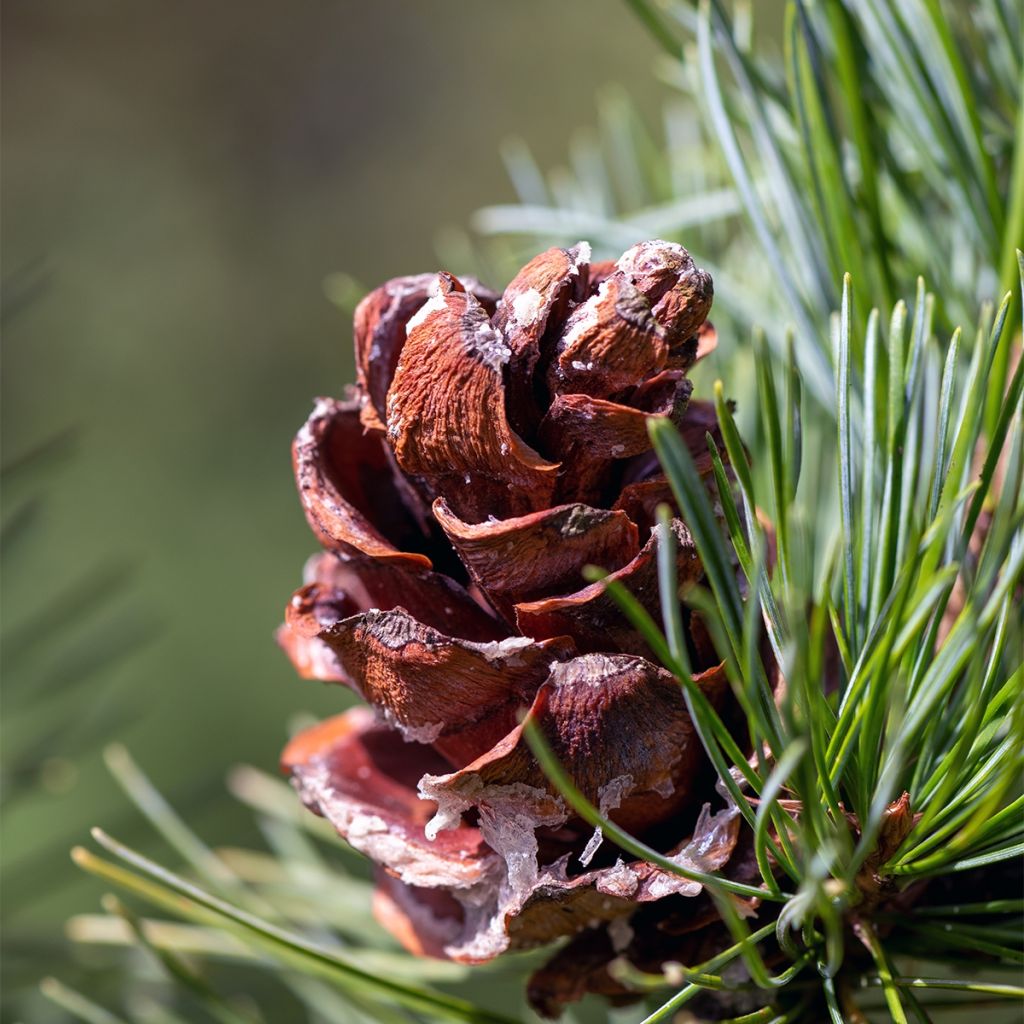

Pinus parviflora Tempelhof - Japanese White Pine
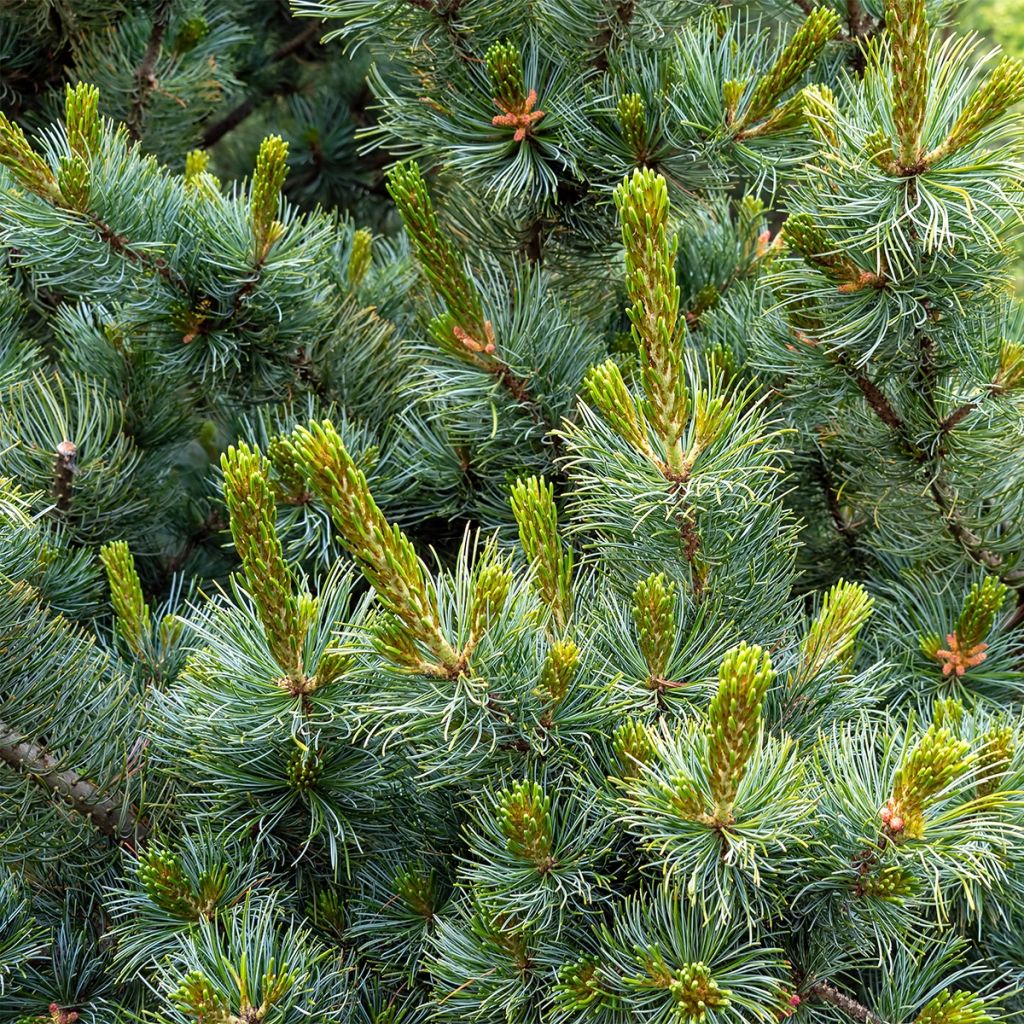

Pinus parviflora Tempelhof - Japanese White Pine
Pinus parviflora Tempelhof - Japanese White Pine
Pinus parviflora Tempelhof
Japanese White Pine, Five-needle Pine, East Asian White Pine
Special offer!
Receive a €20 voucher for any order over €90 (excluding delivery costs, credit notes, and plastic-free options)!
1- Add your favorite plants to your cart.
2- Once you have reached €90, confirm your order (you can even choose the delivery date!).
3- As soon as your order is shipped, you will receive an email containing your voucher code, valid for 3 months (90 days).
Your voucher is unique and can only be used once, for any order with a minimum value of €20, excluding delivery costs.
Can be combined with other current offers, non-divisible and non-refundable.
Home or relay delivery (depending on size and destination)
Schedule delivery date,
and select date in basket
This plant carries a 24 months recovery warranty
More information
We guarantee the quality of our plants for a full growing cycle, and will replace at our expense any plant that fails to recover under normal climatic and planting conditions.
Would this plant suit my garden?
Set up your Plantfit profile →
Description
Pinus parviflora 'Tempelhof' is a variety of Japanese White Pine with a very characteristic habit, with its upright branches and needles arranged in clusters on the relatively short twigs. It grows quite slowly and reaches a medium size, only adopting its characteristic, widely conical and irregular habit after many years. It is also appreciated for the beauty of its foliage, composed of slightly curved needles, with a lovely blue-green colour. This conifer deserves a prominent place in the garden, as a solitary specimen. Undemanding and very frugal, it prefers sunny and well-drained soils, loose and moderately rich, fresh or even quite dry in summer.
Pinus parviflora, also known as Japanese White Pine or Five-Needle Pine, is a conifer of the Pinaceae family, which includes many other important genera for ornamental or economic purposes, such as Pines, Firs, Cedars, Larches or Spruces. This Pine is native to forests located at altitudes between 1300 and 1800m (4265 and 5905ft) in the Japanese islands. In its natural environment, this species can exceed 20m (66ft) in height and has a pyramidal habit, often as wide as it is tall, with a dense conical crown. Appreciated for its wood in Japan, this elegant species has given rise to very beautiful forms, often shaped as bonsais.
The 'Tempelhof' variety forms a small tree with a well-defined central axis and laterally arranged branches in an irregular manner, horizontal to erect. Its habit, rather upright in its youth, becomes conical to pyramidal with age, more or less twisted. It is thus perfectly suited for cloud pruning to structure a Japanese-inspired garden. With a rather slow growth, it reaches about 4m (13ft) in height and 3m (10ft) in spread after 10 years of planting, and then continues to grow to form a small tree of 6 to 10m (20 to 33ft) in height, or even more, with a width of about 5 to 7m (16 to 23ft). The young twigs are brown-green, and with age, the bark takes on a grey-black colour. This Pine has beautiful foliage composed of needles arranged in bundles of 5, and grouped in clusters on the branches. Fairly long, measuring from 4.5 to 6.5cm (2 to 3in), slightly curved, they are blue on the upper side and green on the lower side, giving a decorative bluish overall hue. Their arrangement in clusters on the branches gives this Pine a recognizable appearance. The cream-yellow flowering in May is quite discreet; after 8 to 10 years, brown ovoid cones measuring 5 to 10cm (2 to 4in) in length and 3 to 4cm (1 to 2in) in width appear. They persist for several years on the branches.
This slow-growing Pine is resistant to urban pollution, in addition to being extremely hardy (down to -25/-30°C).
Japanese White Pines are unjustly unknown to gardeners: they are cold-resistant, tolerate some drought, and are very adaptable in terms of soil as long as it is properly drained. Pinus parviflora 'Tempelhof' will find its place in all gardens, from north to south of our country, as its Japanese origins do not prevent it from flourishing in very different climates. This timeless small tree will look good as a solitary specimen and will also bring majesty to a medium-sized garden.
With its moderate growth and its very Japanese silhouette, it will certainly make a magnificent subject in a Japanese garden. It can be associated with the bamboo Pseudosasa japonica with its fiercely Far Eastern appearance, the magnificent Camellias with their evocative beauty, and of course, the Japanese Maples, such as the beautiful variety 'Sangokaku', whose delicate foliage swayed by the wind will lighten the vegetal mass formed by our Japanese Pine.
Report an error about the product description
Pinus parviflora Tempelhof - Japanese White Pine in pictures
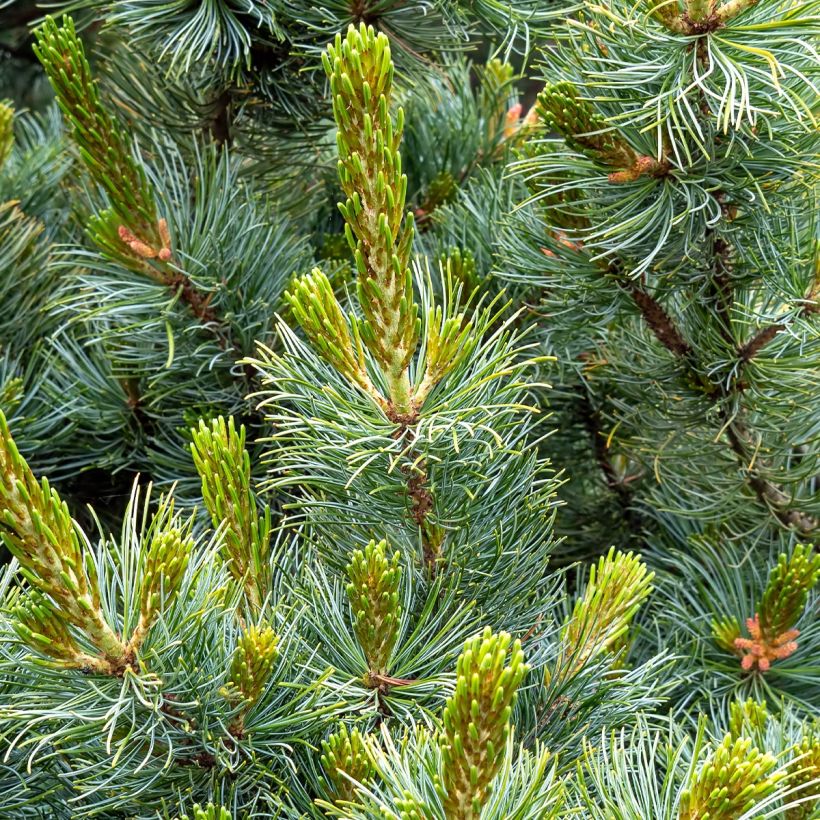

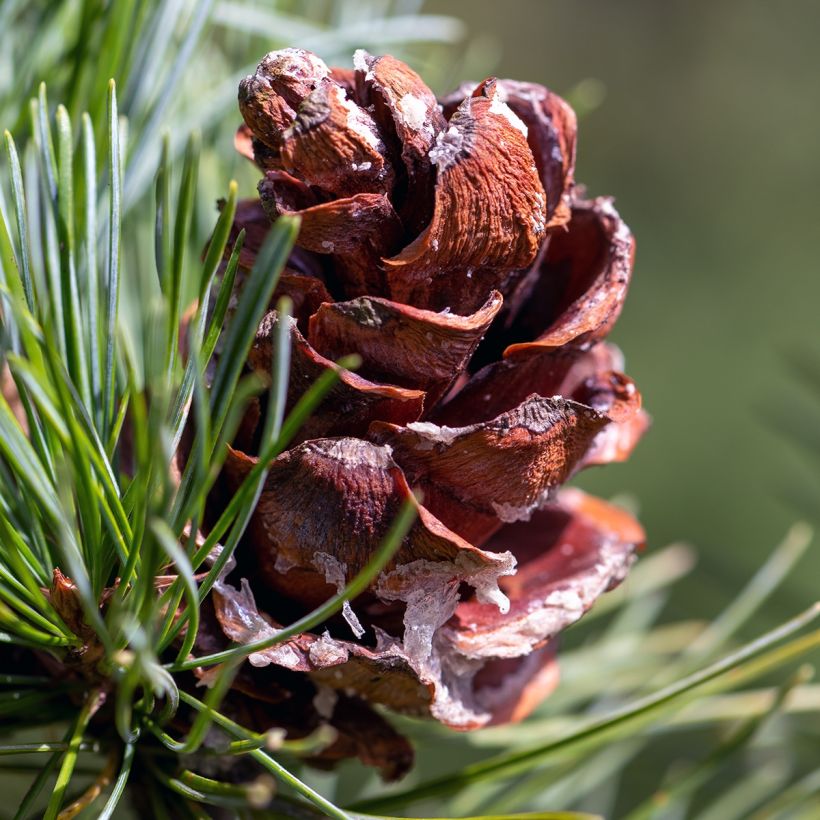

Plant habit
Flowering
Foliage
Botanical data
Pinus
parviflora
Tempelhof
Pinaceae
Japanese White Pine, Five-needle Pine, East Asian White Pine
Cultivar or hybrid
Other Pinus - Pine
View all →Planting and care
Pinus parviflora 'Tempelhof' should be planted from September to November and from February to June in ordinary soil, even poor, even sandy or limestone, but well-drained. Choose a sunny location or, at most, partially shaded in a hot climate. Soak the rootballs well before planting. Add organic amendment at planting and water generously in the first two years, and in case of abnormally prolonged drought. In very poor soil, optionally apply a special conifer fertilizer every year in April and cultivate the soil in summer. This very hardy conifer (up to -20°C (1°F) at least) is not afraid of wind, adapts to poor soils, but fears waterlogged soils in winter and summer heatwaves. To keep it in more compact dimensions, pruning can be done annually from September to November by shortening the shoots that are deemed unattractive, gradually achieving the desired shape over the years.
Planting period
Intended location
Care
This item has not been reviewed yet - be the first to leave a review about it.
Similar products
Haven't found what you were looking for?
Hardiness is the lowest winter temperature a plant can endure without suffering serious damage or even dying. However, hardiness is affected by location (a sheltered area, such as a patio), protection (winter cover) and soil type (hardiness is improved by well-drained soil).

Photo Sharing Terms & Conditions
In order to encourage gardeners to interact and share their experiences, Promesse de fleurs offers various media enabling content to be uploaded onto its Site - in particular via the ‘Photo sharing’ module.
The User agrees to refrain from:
- Posting any content that is illegal, prejudicial, insulting, racist, inciteful to hatred, revisionist, contrary to public decency, that infringes on privacy or on the privacy rights of third parties, in particular the publicity rights of persons and goods, intellectual property rights, or the right to privacy.
- Submitting content on behalf of a third party;
- Impersonate the identity of a third party and/or publish any personal information about a third party;
In general, the User undertakes to refrain from any unethical behaviour.
All Content (in particular text, comments, files, images, photos, videos, creative works, etc.), which may be subject to property or intellectual property rights, image or other private rights, shall remain the property of the User, subject to the limited rights granted by the terms of the licence granted by Promesse de fleurs as stated below. Users are at liberty to publish or not to publish such Content on the Site, notably via the ‘Photo Sharing’ facility, and accept that this Content shall be made public and freely accessible, notably on the Internet.
Users further acknowledge, undertake to have ,and guarantee that they hold all necessary rights and permissions to publish such material on the Site, in particular with regard to the legislation in force pertaining to any privacy, property, intellectual property, image, or contractual rights, or rights of any other nature. By publishing such Content on the Site, Users acknowledge accepting full liability as publishers of the Content within the meaning of the law, and grant Promesse de fleurs, free of charge, an inclusive, worldwide licence for the said Content for the entire duration of its publication, including all reproduction, representation, up/downloading, displaying, performing, transmission, and storage rights.
Users also grant permission for their name to be linked to the Content and accept that this link may not always be made available.
By engaging in posting material, Users consent to their Content becoming automatically accessible on the Internet, in particular on other sites and/or blogs and/or web pages of the Promesse de fleurs site, including in particular social pages and the Promesse de fleurs catalogue.
Users may secure the removal of entrusted content free of charge by issuing a simple request via our contact form.
The flowering period indicated on our website applies to countries and regions located in USDA zone 8 (France, the United Kingdom, Ireland, the Netherlands, etc.)
It will vary according to where you live:
- In zones 9 to 10 (Italy, Spain, Greece, etc.), flowering will occur about 2 to 4 weeks earlier.
- In zones 6 to 7 (Germany, Poland, Slovenia, and lower mountainous regions), flowering will be delayed by 2 to 3 weeks.
- In zone 5 (Central Europe, Scandinavia), blooming will be delayed by 3 to 5 weeks.
In temperate climates, pruning of spring-flowering shrubs (forsythia, spireas, etc.) should be done just after flowering.
Pruning of summer-flowering shrubs (Indian Lilac, Perovskia, etc.) can be done in winter or spring.
In cold regions as well as with frost-sensitive plants, avoid pruning too early when severe frosts may still occur.
The planting period indicated on our website applies to countries and regions located in USDA zone 8 (France, United Kingdom, Ireland, Netherlands).
It will vary according to where you live:
- In Mediterranean zones (Marseille, Madrid, Milan, etc.), autumn and winter are the best planting periods.
- In continental zones (Strasbourg, Munich, Vienna, etc.), delay planting by 2 to 3 weeks in spring and bring it forward by 2 to 4 weeks in autumn.
- In mountainous regions (the Alps, Pyrenees, Carpathians, etc.), it is best to plant in late spring (May-June) or late summer (August-September).
The harvesting period indicated on our website applies to countries and regions in USDA zone 8 (France, England, Ireland, the Netherlands).
In colder areas (Scandinavia, Poland, Austria...) fruit and vegetable harvests are likely to be delayed by 3-4 weeks.
In warmer areas (Italy, Spain, Greece, etc.), harvesting will probably take place earlier, depending on weather conditions.
The sowing periods indicated on our website apply to countries and regions within USDA Zone 8 (France, UK, Ireland, Netherlands).
In colder areas (Scandinavia, Poland, Austria...), delay any outdoor sowing by 3-4 weeks, or sow under glass.
In warmer climes (Italy, Spain, Greece, etc.), bring outdoor sowing forward by a few weeks.






























